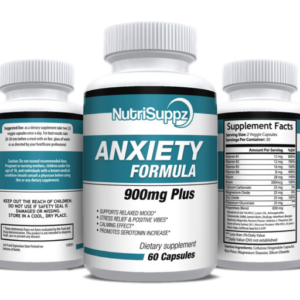12 Jun Understanding Anxiety
Understanding Anxiety: Causes, Symptoms, and Effective Treatments
Anxiety is a common mental health condition that affects millions of people worldwide. While it’s normal to feel anxious in certain situations, chronic anxiety can significantly impact daily life and overall well-being. This comprehensive guide will explore the causes, symptoms, and effective treatments for anxiety, providing valuable insights for those seeking relief and understanding.
What is Anxiety?
Anxiety is the body’s natural response to stress, characterized by feelings of fear, worry, and apprehension about future events. It’s a normal reaction to potential threats and can help individuals stay alert and focused. However, when anxiety becomes excessive and persistent, it can interfere with daily activities and lead to an anxiety disorder.
Causes of Anxiety
Genetics
Family history plays a significant role in the likelihood of developing anxiety. Studies suggest that individuals with a family history of anxiety disorders are more prone to experiencing anxiety themselves.
Brain Chemistry
Imbalances in neurotransmitters, such as serotonin and dopamine, can contribute to anxiety. These chemicals regulate mood and emotions, and their dysregulation can lead to heightened anxiety levels.
Environmental Factors
Stressful life events, such as trauma, abuse, or significant life changes, can trigger anxiety. Chronic stress and lack of support systems also contribute to the development of anxiety disorders.
Medical Conditions
Certain medical conditions, such as heart disease, diabetes, and thyroid problems, can cause or exacerbate anxiety symptoms. Additionally, medications and substance abuse can also lead to anxiety.
Symptoms of Anxiety
Anxiety manifests in various physical, emotional, and behavioral symptoms. Common symptoms include:
Physical Symptoms
Increased heart rate
Sweating
Trembling or shaking
Shortness of breath
Dizziness or lightheadedness
Gastrointestinal issues
Emotional Symptoms
Excessive worry or fear
Feelings of impending doom
Restlessness or irritability
Difficulty concentrating
Overthinking and ruminating
Behavioral Symptoms
Avoidance of anxiety-inducing situations
Social withdrawal
Compulsive behaviors (e.g., excessive hand-washing)
Trouble sleeping or insomnia
Effective Treatments for Anxiety
Psychotherapy
Cognitive-behavioral therapy (CBT) is one of the most effective treatments for anxiety. It helps individuals identify and change negative thought patterns and behaviors contributing to anxiety.
Medications
Antidepressants, such as selective serotonin reuptake inhibitors (SSRIs), and anti-anxiety medications, like benzodiazepines, can help manage anxiety symptoms. It’s essential to consult with a healthcare provider to determine the best medication for individual needs.
Lifestyle Changes
Regular exercise, a balanced diet, adequate sleep, and stress management techniques (e.g., yoga, meditation) can significantly reduce anxiety symptoms.
Support Groups
Joining support groups can provide a sense of community and understanding. Sharing experiences and coping strategies with others facing similar challenges can be incredibly beneficial.
Mindfulness and Relaxation Techniques
Mindfulness meditation, deep breathing exercises, and progressive muscle relaxation can help calm the mind and reduce anxiety.
When to Seek Help
While occasional anxiety is normal, it’s crucial to seek professional help if anxiety becomes overwhelming and starts to interfere with daily life. A mental health professional can provide a proper diagnosis and create a tailored treatment plan to manage anxiety effectively.
Conclusion
Anxiety is a prevalent mental health condition that can affect anyone. Understanding its causes, recognizing symptoms, and seeking appropriate treatment are essential steps toward managing anxiety and improving overall well-being. With the right support and strategies, individuals can lead fulfilling lives despite anxiety.
If you or someone you know is struggling with anxiety, don’t hesitate to reach out for professional help. Remember, effective treatment is available, and you’re not alone in this journey.


No Comments